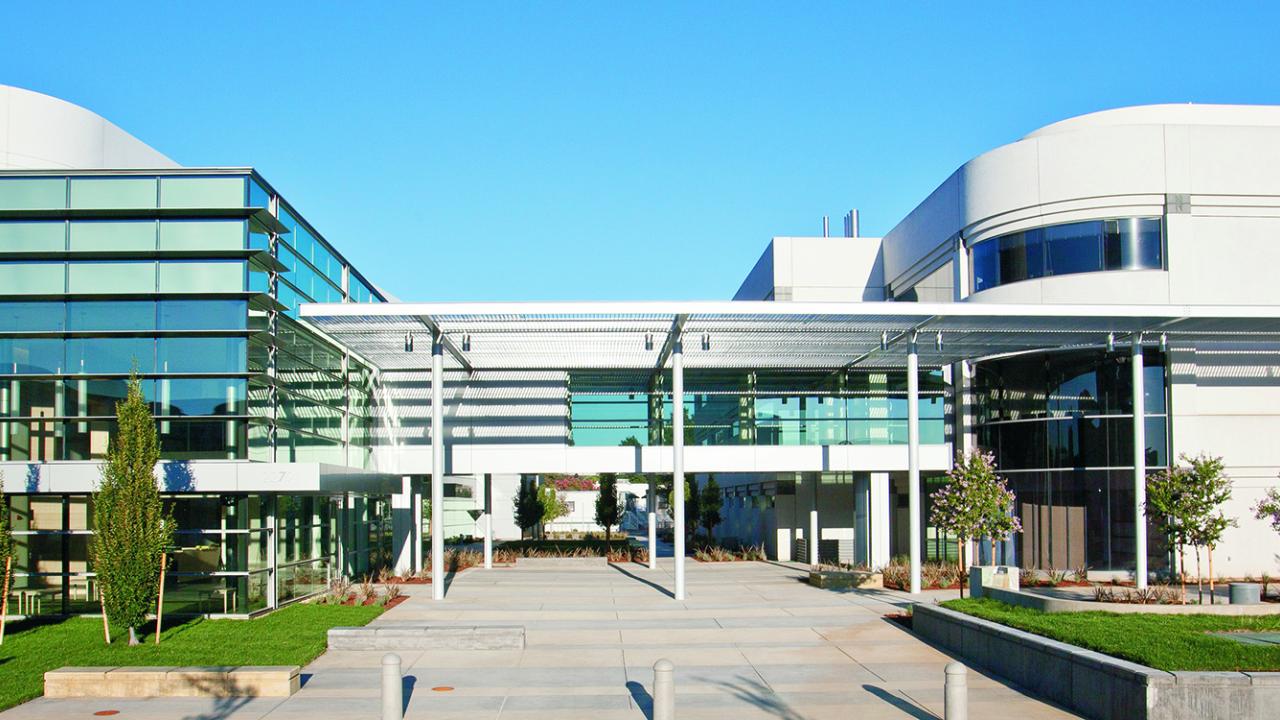
Cancer Center to help patients tackle nicotine addiction
Initiative aims to make cancer treatments more effective and boost survivorship
(SACRAMENTO) —Steven Berkstresser has chewed tobacco for most of the past 40 years, and he’s always wanted to kick the habit. But it was a cancer diagnosis that prompted him to join a UC Davis program to help him quit.
Through the Stop Tobacco classes at UC Davis Health, Berkstresser learned that quitting tobacco can actually boost his chances of survival and cut the risk of a second cancer diagnosis.
Tobacco-free Living for Cancer Patients
“To me, it’s obvious,” the 57-year-old state worker said. “Chewing tobacco can cause tooth loss and mouth cancer, and I have high blood pressure and other stuff that would subside if I gave it up. Also, (tobacco use) makes the drugs they give you to fight the cancer less effective.”
Berkstresser is just the kind of person the UC Davis Comprehensive Cancer Center hopes to reach in a new effort that aims to support tobacco cessation among people diagnosed with cancer. The initiative is funded with a Moonshot grant from the National Cancer Institute.
“Research has shown that it’s never too late to quit using tobacco, especially among people battling cancer,” said Terri Wolf, nurse program manager for the Cancer Center Cessation Initiative. “In addition to making the cancer treatment more effective, quitting can reduce the side effects of chemotherapy, radiation and surgery, and improve patients’ overall quality of life.”
Among the findings cited in the National Comprehensive Cancer Network’s 2017 cessation guidelines:
- A large 2016 study on patients with head and neck cancers found significantly higher mortality among patients who continued to smoke after a diagnosis than patients who never smoked; researchers also predicted that even after a cancer diagnosis quitting may have beneficial effects on long-term overall mortality.
- A 2011 review of 10 studies of newly diagnosed lung cancer patients found higher mortality and a greater risk of secondary tumors and cancer recurrence in patients who continued to smoke, and concluded that offering smoking cessation treatment to patients with early-stage lung cancer may be beneficial.
When Lawrence Glaser, a 62-year-old from Elk Grove, learned in 2014 that had late-stage lung cancer, he not only kept smoking, but started drinking again after years of sobriety. It wasn’t until he took stock of the fact that his UC Davis team of doctors was doing everything they could to save his life that he took action to change course.
"I finally realized that the doctors were working 100 percent for me, and I was just being a bump on a log,” he said during a recent Cancer Center visit.
Glaser joined a smoking cessation class at UC Davis Health, and finally stubbed out his last cigarette after his third attempt.
"It was the hardest thing I’ve ever done,” he said. “It was like getting rid of an old friend."
Now, he tracks his savings – about $4,300 per year, and notes how his sleep apnea, raspy voice and wheezing are gone.
Cancer Center patients who want to quit are given a number of options that include free classes, support groups, medications and counseling:
- The two-hour interactive workshop taught by a certified tobacco specialist and health educator. It addresses strategies to quit tobacco use and covers basic information about tobacco addiction, how to break the addiction cycle, medications and self-management skills.
- The Stop Tobacco Smoking Cessation series is eight sessions and focuses on empowering tobacco users to overcome the addiction through behavior modification, nutrition, medications and relapse prevention. Various tools and strategies are offered and a multidisciplinary team consults with the group to support each person’s process. It is led by a certified tobacco treatment specialist and health educator.
- Smoke-free support groups meet monthly and are offered as a drop-in, in-person group. These groups are ideal for those who have quit tobacco and want ongoing group support to maintain success in their new healthy lifestyle. These are facilitated by a certified tobacco treatment specialist or health educator.
- Medications, available by prescription and covered by most insurance, include nicotine patches, gum, inhaler, lozenges and nasal spray, Chantix (a drug to reduce cravings and make tobacco less pleasurable) and Wellbutrin (an antidepressant that can reduce cravings and effects of withdrawal).
- California Smokers’ Helpline is a telephone program that can help people quit smoking. Helpline services are free, funded by the California Department of Public Health. To reach the Smokers' Helpline call, 1-800-NO-BUTTS or 1-800-662-8887.
- Nicotine lozenges (no prescription needed) for patients, their families and visitors to help manage nicotine craving are available throughout the health system, including at the Cancer Center information desks and resource center.
Cari Shulkin, a tobacco treatment specialist who facilitates the tobacco cessation programs, emphasized that quitting tobacco is extremely difficult and that many patients, especially those dealing with a cancer diagnosis, may need several attempts before they are successful.
“Nicotine addiction is very isolating,” she said. “Guilt and shame are a big part of the struggle when someone has repeatedly tried to quit and failed. This failure chips away at a person’s confidence and the addiction becomes overwhelming and utterly compulsive. Our program can support patients on this journey, guiding them through the challenges of this addiction.”
Berkstresser knows the challenges first hand. In addition to facing bladder cancer treatment, he said other recent struggles in life have made dealing with his addiction tough, but has not given up.
“It was too big of a thing to bite off on top of everything else,” he said. “I’ll try again. The class and interaction and discussion are invaluable. Besides all of the techniques they give you, to be able to go to class and talk about what you are going through is really good.”
For more information visit the UC Davis Health Website.
